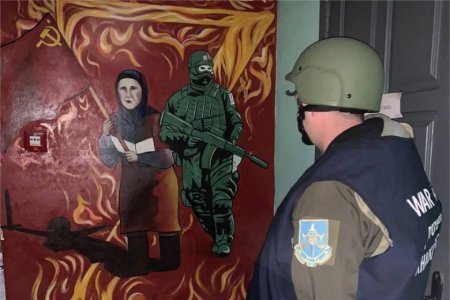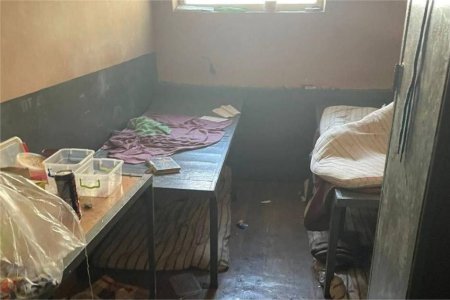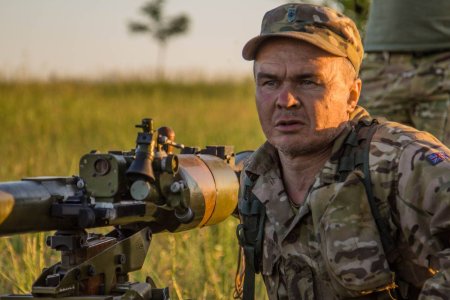Just before the war, I went to the dentist, and he said that Putin would start a war! The Americans and intelligence said this, but I didn’t believe them. After all, the 21st century is here, and such a conflict should not have happened. But my late father once said that there is nothing good about Putin. His eyes are cold like a fish’s.
I was getting ready to go to work on 24 February, but a coworker called and said not to come because a full-scale war had started. I told my mother everything. Everyone began to hurry. Queues began to appear at the pharmacy. I turned on the TV on the 24th and understood everything. Two days later, they were already shooting at Borodianka, so we started hiding in the basement. I grabbed my mother to go and smelled the smell of gunpowder.
Of course, we saw Russian troops passing by and driving towards the station. Then panic began. My sister called us and said that tanks were coming and we should go to the basement. We sat in the basement almost all the time and didn’t know anything. We didn’t know what to do. I asked one man what to do, and he answered — stay in the basement. And then Iryna Zakharchenko, our deputy, said, let’s move from the basement to the kindergarten. And before that, a friend saw helicopters flying. He thought it was ours, but they were not.

The helicopter flew, the plane, and the rocket. I grabbed my friend, and then there was an explosion. The basement was terrifying, and almost half the residents were already gone. In the evening, we slowly moved to the kindergarten. Iryna Zakharchenko, our deputy, showed us the way, and we spent the night there.
The next day, they asked who would evacuate from Borodianka. Well, we are! About fifteen people, but thirty climbed in. After that, it was easier. We were driving, and an armored personnel carrier was on the Kyiv-Kovel highway — how it boomed! The driver turned the steering wheel sharply to the right, barely breaking through. There were Russian armored personnel carriers there. We miraculously broke through. Half-broken glass, a car — and we are on top of each other. First, we went to Zahaltsi and from there — to Spartak. We lived in Spartak for three days. I thought that we needed to run again. My mother is old.
After that, we went to Piskivka and then to Teteriv. But they had already started bombing there. We got into the minibus and drove on. Where to go? To Radomyshl or Zhytomyr? We decided to go to Zhytomyr. It was easier once we got there. And from Zhytomyr, we went to Lviv.
What’s wrong with your house?
The house is almost destroyed; it is impossible to live in it. Our five-story building was built in 1975, and we moved into it. The middle of the building is completely destroyed. The apartments were burned out, and the house was uninhabitable. Let’s put it this way: there is no gas, and the door was broken by the blast wave.

There was a missile strike, and because of the snipers there, the Russians began to fire at houses brutally and endlessly: “Bang-bang.” The terrorist defense was driving, the guys were shooting back, and then they [Russians] started shooting from the tanks. Good, oh God... We were more or less OK, but the women were afraid of Russian soldiers. They thought that they would shoot us here. The panic was intense, but thank God, we evacuated on 2 March 2022.



